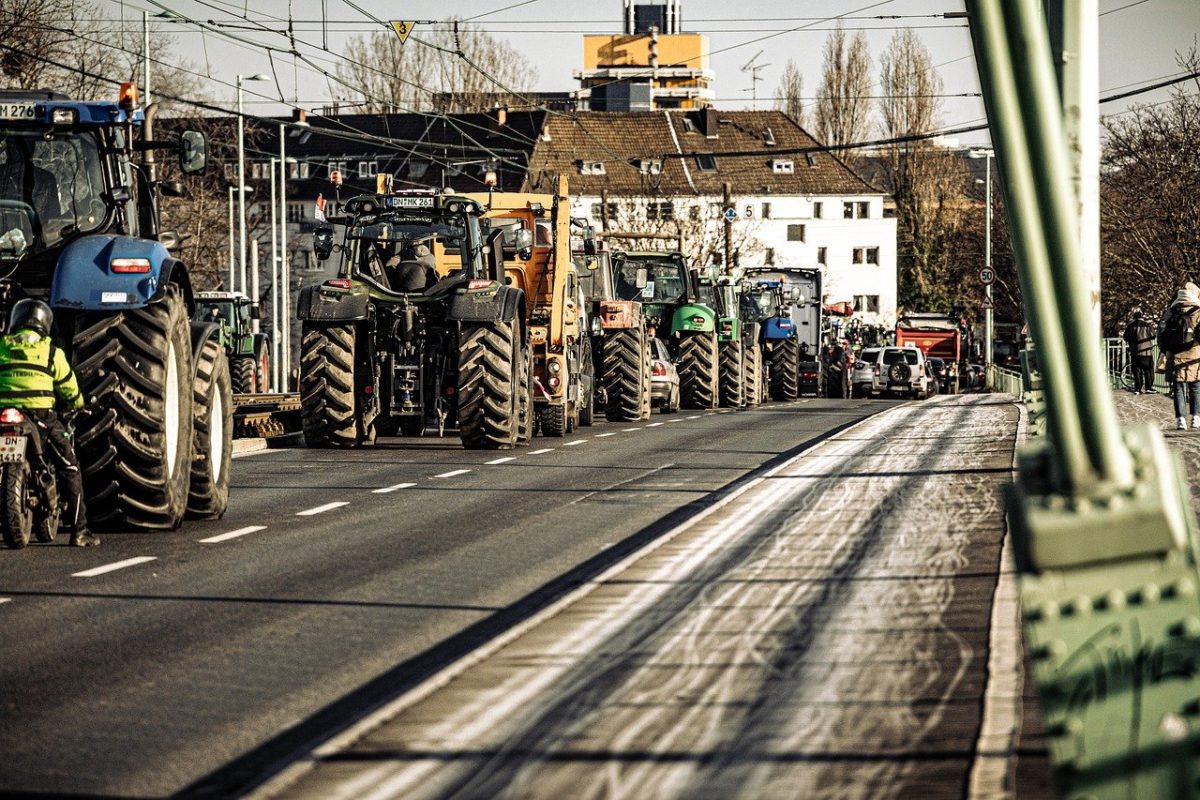Recently, the agricultural sector has experienced significant unrest, manifesting in waves of farmer protests across the globe. Particularly prominent in the EU and India, these movements have been driven by a confluence of economic, environmental, and political challenges, reflecting broader concerns about sustainability, equity, and governance in the agricultural domain. This briefing note provides an overview of these protests, highlighting key examples, common themes and issues, and the wider political implications.
Key Examples of Farmer Protests
- India (2020-2021/24): One of the most extensive and sustained farmer protests in history occurred in India against three agricultural laws introduced by the government. The farmers feared that the new laws would dismantle the minimum support price (MSP) system, leaving them vulnerable to exploitation by large corporations.
- The Netherlands (2019-): Dutch farmers launched protests against government proposals to reduce nitrogen emissions, which involved cutting livestock numbers and restricting farming activities. The protests were marked by using tractors to blockade major roads and cities.
- France (2019-): French farmers protested against the signing of the EU-Mercosur trade deal, which they argued would flood the market with agricultural products from South America, undercutting local produce and compromising environmental and health standards.
- Germany (2020-): German farmers protested against environmental regulations, particularly those related to reducing nitrate levels and protecting biodiversity, which they claimed were overly burdensome and threatened their livelihoods.
Common Themes and Issues
- Economic Vulnerability: A central theme across these protests is the economic vulnerability of farmers, exacerbated by market liberalisation, fluctuating commodity prices, and inadequate government support mechanisms.
- Environmental Regulations: Farmers often find themselves at the forefront of environmental regulation impacts, challenging their traditional practices and necessitating significant investment in sustainable technologies and methods.
- Trade Agreements: International trade agreements have raised concerns among farmers about unfair competition, with imports from countries with lower production costs or different regulatory standards threatening local agricultural sectors.
- Political Representation: A recurring issue is the perceived lack of representation and voice for farmers in political decision-making processes, leading to policies that participants view as disconnected from on-ground realities.
Wider Political Implications
- Populism and Political Mobilisation: The farmer protests have contributed to the rise of populist movements in some regions, with political parties and leaders leveraging agricultural grievances to mobilise support.
- International Relations: Agricultural issues have also influenced international relations, with trade agreements and environmental commitments coming under scrutiny in the context of farmer protests.
- Socio-Economic Reforms: The protests have catalysed broader debates about socio-economic reforms, including the need for equitable economic policies, sustainable agricultural practices, and comprehensive support systems for rural communities.
- Policy Reevaluation: In response to the protests, some governments have been forced to reevaluate and, in certain cases, roll back contentious policies, highlighting the political power of collective farmer action.
Analysis
The wave of farmer protests around the world is a manifestation of the deep-seated challenges facing the agricultural sector. These movements reflect broader concerns about economic vulnerability, environmental sustainability, and political representation. The responses to these protests, ranging from policy shifts to increased political mobilisation, underscore the significant role of the agricultural community in shaping national and international agendas. The root causes of these protests also reflect on wider sociopolitical issues, and should be considered a warning sign of the disconnect between politicians and large sections of those they represent.
